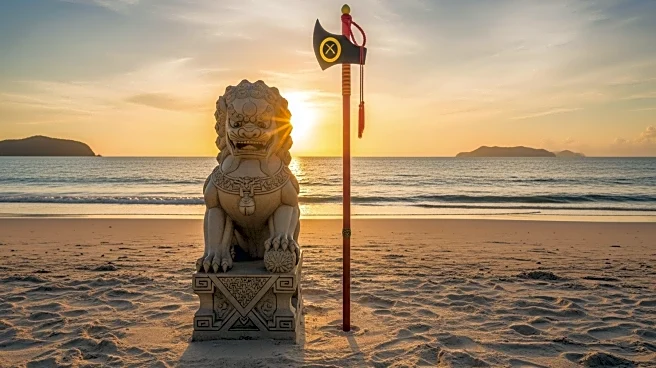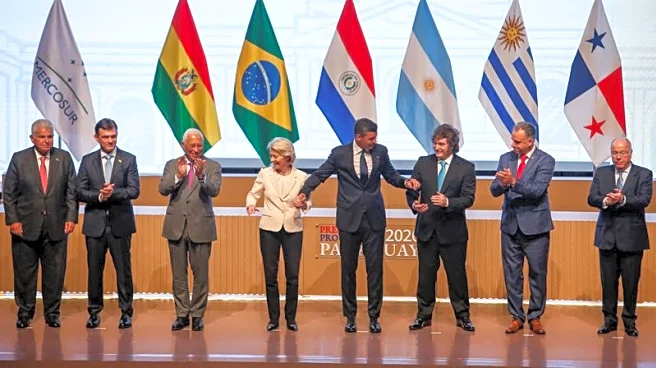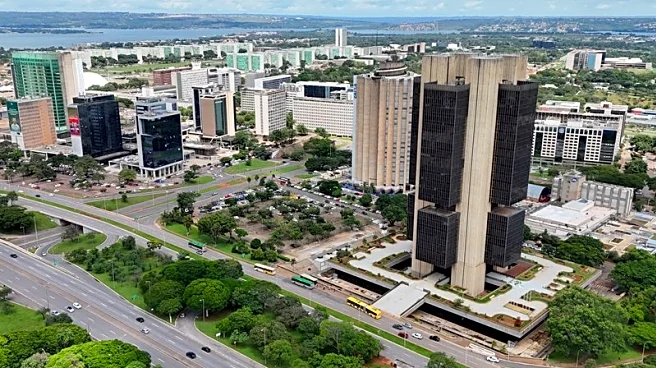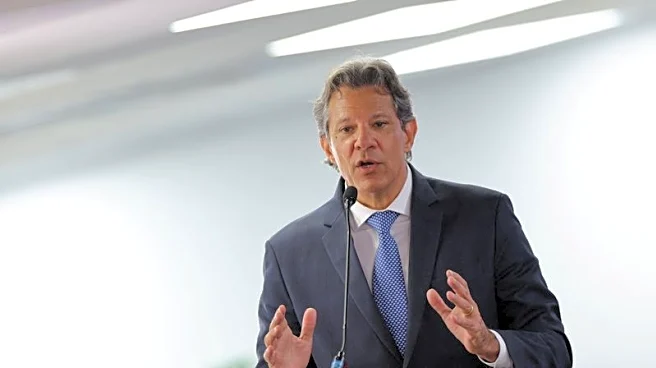What's Happening?
China is set to formalize a policing agreement with Vanuatu, marking the first time Chinese police officers will operate in the Pacific island nation. This development is part of Beijing's broader strategy to expand its security footprint in the region, which has drawn scrutiny from Western governments. Chinese police are already active in several countries, including the Solomon Islands and Kiribati, ostensibly to enhance bilateral security cooperation and support Chinese nationals abroad. Vanuatu's Police Minister Andrew Napuat confirmed that China has agreed to donate equipment such as drones and motorcycles to Vanuatu's police force. The agreement follows a series of Memorandums of Understanding (MOUs) Vanuatu has established with other countries, including Australia, New Zealand, and France.
Why It's Important?
The formalization of this policing agreement is significant as it could shift the balance of power in the Asia-Pacific region. Rights groups have expressed concerns that China's police deployments may be used to monitor and intimidate dissidents overseas, potentially exporting its surveillance-driven policing model. The United States and Australia have voiced apprehensions about China's growing influence in the region, which could challenge existing security dynamics. The agreement also highlights China's strategic interest in strengthening ties with Pacific nations, potentially impacting regional alliances and security policies.
What's Next?
The timeline for finalizing the policing agreement between China and Vanuatu remains unclear, as does the extent of the Chinese police presence. The development comes shortly after Australian Prime Minister Anthony Albanese's visit to Vanuatu, where he failed to secure a proposed 10-year aid and security package. The situation may prompt further diplomatic engagements and negotiations among regional stakeholders, as countries like Australia reassess their strategies to counterbalance China's influence.
Beyond the Headlines
The agreement raises questions about the future policing model in the Pacific region. The Australian Strategic Policy Institute has commented on the broader implications, suggesting that the contest is not merely about aid or infrastructure but about the type of policing model that will prevail. This could lead to a regional shift towards either a model rooted in transparency and community service or one characterized by surveillance and political control.









